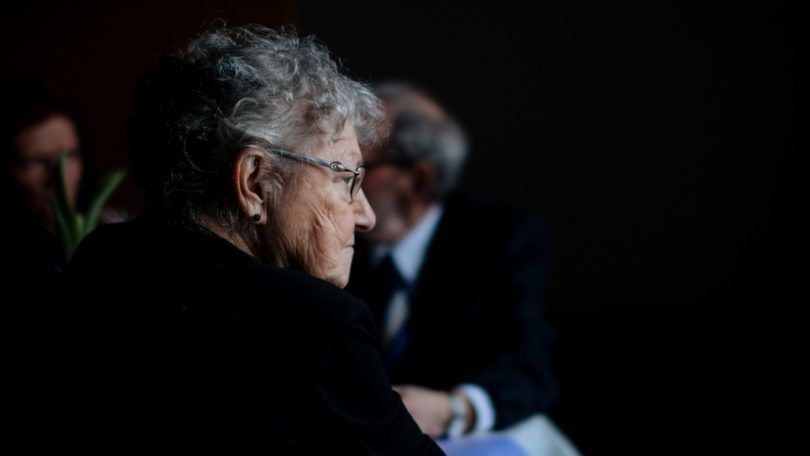Battling dementia with Radboud’s ‘women’s grant’
-
 Image: Christian Langballe (CC)
Image: Christian Langballe (CC)
This afternoon, ten female scientists receive a Radboud grant of five thousand euros, to stimulate them to continue in science. One of them is PhD student Miriam Haaksma. She will use the money to build a worldwide network of dementia researchers.
After finishing their thesis, female scientists still continue in science a lot less often than their male colleagues. To stimulate them to pursue a career in science, Radboud University started the the Christine Mohrmann Grants twenty-seven years ago. This afternoon, another ten women receive a 5000 euro grant.
Miriam Haaksma is one of them. She is a PhD student at the medical faculty and works on creating a prognostic model for patients with dementia. ‘I want to create insight into the speed of deterioration of Alzheimer patients’, she says. ‘There are a lot of studies on people with dementia, but we have very little follow-up data. If we can identify how dementia develops in various people, we might be able to improve care.’
Enthusiasm
After finishing her dissertation, Haaksma wants to set up a network of dementia researchers. ‘There are a lot of small studies, everywhere in the world. I want to bring those studies together.’ Because of the grant, she will be able to travel to the universities she wants to include in the network. Among others, she wants to go to the University of Victoria in Canada and Utah State University in America. ‘There was a big study in Utah, with a cohort of more than three hundred people’, she says. ‘The data set is there, so I would like to use it.’ In Victoria, multiple studies on aging have been brought together. ‘That’s why I think it’s good to involve them too.’
‘I appreciate the gesture to stimulate women to continue in science’
The goal is not to lump all studies together, but to create more contact between research and exchange results, says Haaksma. ‘This way, we can research differences between countries and see which results correspond with each other. We will explore all possibilities’, says Haaksma. Without the Mohrmann Grants, she would not have had the budget to travel to other universities herself, she says. ‘And these things are a lot harder through Skype. When you are there yourself, you can look at data together, motivate people and show enthusiasm.’ She is happy with the extra support the grant gives her. ‘At the highest level in science, the vast majority of people is still male. This of course comes from past times, because it’s the women who have the children. I appreciate the gesture to stimulate women to continue in science.’



